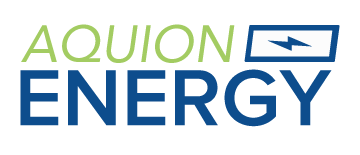How Do You Build a Solar Energy Marketing Plan?
Marketing has become an inseparable part of business success in our digital world. No doubt, everyone recognizes the importance of marketing as a key tool for driving sales. However, to truly succeed, it’s essential to understand the nuances of effective marketing.

While many common marketing strategies can work for different industries, some specific niches like solar energy require a special approach. So, if you have a solar energy business and want to propel it forward, this guide will assist you along the way.
Let’s dive in and explore how to adjust your marketing plan accordingly.
Contents
What is Solar Marketing?
Before exploring key steps to create a solid solar marketing plan, let’s give a brief definition of solar marketing. It involves developing and implementing initiatives to raise awareness of solar power technologies among potential customers.

This includes both informing consumers about solar energy options you provide and encouraging potential investors to financially support solar technologies.
In addition to boosting interest in renewable energy and sustainability, solar marketing can also be cost-effective. When done right, there’s no need to spend a fortune on advertising. Want to lead how to achieve this? Let’s explore it in the next chapter.
Basic Steps to Craft a Robust Solar Energy Marketing Plan
If you want to create a compelling marketing plan for your solar business, here are key steps to focus on.
1. Define Your Goals
One of the most important steps is identifying your objectives. At this stage, you need to clarify the main purpose of your marketing efforts. For example, you might aim to increase brand awareness, drive sales, or generate leads. This will help you adjust your marketing plan effectively to achieve your desired results.
For example, if you seek to increase sales, then all your marketing materials should have a call to action (CTA) at the end. You may offer different CTA like “explore our latest product”, “get a discount”, “shop now and save” etc.
2. Segment Target Audience
To identify your target audience, you may conduct market research. After that, segment them and understand their needs to craft your marketing campaigns effectively.
In addition, you may create buyer personas and streamline this process. As a result, you will have insights into your potential customers’ demographics, interests, and pain points. It will help develop targeted marketing strategies.
Moreover, your target audience can serve as a powerful source of referrals for your business. This approach is not only cost-effective for attracting new clients but can also significantly enhance the satisfaction of your existing customers.
Plus, implementing a referral program is straightforward. With the right referral program software tool, you may easily create, manage, and track your efforts.
3. Develop Your Unique Selling Proposition
Solar energy has become quite popular in recent years. As such, competition had become fires. To stay at the forefront, it’s essential to differentiate yourself from the competitors. One of the ways to achieve it is creating a Unique Selling Proposition (USP).
For example, you might emphasize that your solution not only maximizes energy efficiency and contributes to a healthier planet but also offers long-lasting durability. Additionally, if you provide an extended warranty—such as over 10 years—this can add an extra layer of trustworthiness to your services, reassuring potential customers of your commitment to quality.
4. Create Engaging Content
Another crucial component of establishing a solid solar marketing plan is creating compelling content. It’s advisable to have both engaging short content for your social media platforms and comprehensive guides on your website. High-quality content assists in educating your customers and making your services more attractive to them.
Additionally, well-optimized content is valuable for search engine rankings. However, content creation is not a one-time endeavor. Ideally, you should have a content calendar and strictly follow it.
To streamline this process, it is worthwhile outsourcing Wishup virtual assistants who can help with marketing materials, whether it’s content creation, publication, scheduling, or responding to user comments.
5. Employ Pay-Per Click Advertising
Including pay-per-click (PPC) ads in your marketing plan is a wise choice. PPC can be especially effective if you aim to target the local market and connect with potential clients. Unlike referral marketing, PPC requires an established budget for ads.
However, if you have the financial resources, pay-per-click ads can be an excellent option to enhance your business visibility.
6. Generate Leads
Implementing lead generation strategies is crucial for converting leads into customers. Therefore, include it in your marketing plan.
If you’re wondering how to generate leads, there are several simple yet effective methods. For example, you can organize webinars, run targeted ads, or design engaging landing pages.
Additionally, you may offer subscriptions to encourage people to provide their contact details.
7. Utilize Appropriate Marketing Channels
In your marketing plan, identify the main channels of communication. There is no need to leverage all the popular social media platforms today. Instead, pick the ones that your target audience actively utilizes.
For example, if you find that your potential clients are more active on LinkedIn and Facebook, ensure a strong online presence on these platforms, designing your content to align with each social media format.
Try not to share the same content across different platforms; adjust it to make it more suitable for each chosen platform. This will maximize the impact and effectiveness of your content.
8. Track Efficiency
To ensure that all your marketing efforts are well-coordinated, it’s definitely worth leveraging innovative tools. For example, by using one of the best free time tracking software My Hours, you can effectively manage your team, track tasks, and ensure deadlines are met. Overall, the optimal utilization of resources will bring you peace of mind.
Wrapping Up
Establishing a successful solar energy business begins with a clear marketing plan. It serves as your roadmap to success. In your plan, you should outline all the necessary steps to achieve your desired results. We highlighted the key steps that can assist you in creating a solid marketing strategy. This will empower you to promote your solar energy business and drive growth.

